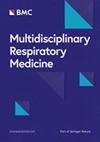通过扩大脉搏氧饱和度计的使用范围改善对慢性心脏病和呼吸系统疾病患者的管理:动态脉搏氧饱和度计
IF 1.6
Q3 RESPIRATORY SYSTEM
引用次数: 0
摘要
呼吸系统和心血管慢性疾病是全球最常见的非传染性疾病(NCDs)之一,在死亡率和残疾率方面占医疗成本的很大一部分。随着人口老龄化的加剧,预计这些疾病的发病率在未来几年还会进一步上升。目前诊断和监测非传染性疾病的医疗模式已经过时,因为这种模式会导致医疗干预过晚和/或基于报告的症状和随后的住院检查和治疗而产生不利的成本效益平衡。目前正在实施的卫生项目和计划试图将非传染性疾病的诊断、监测和随访时间从医院环境中移出,并尽可能地贴近实际生活,目的是提高患者的生活质量并增加卫生系统的预算。在 SARS-CoV-2 大流行之后,这项工作得到了更多的推动。脉搏氧饱和度计(PO)目前被广泛应用于各种临床环境中,但它们也可以帮助对某些病人进行远程监控。脉搏血氧仪可以测量活动量以及脉搏和血氧饱和度,是心血管和呼吸功能的代用指标,目前已被引入市场。要获得这些数据,设备必须绝对可靠,即准确、精确,并能记录足够长的时间,以便进行诊断。本文回顾了脉搏氧饱和度(POy)的当前使用情况,目的是研究如何扩大其当前的使用范围,以便不仅管理心肺功能非传染性疾病,而且在不需要住院但患者情况不确定的情况下,通过远程监控管理急性急症。将对新设计的 "消费者 "和 "专业 "设备进行仔细研究,特别是那些能够 24 小时连续记录生命参数并将其与日常活动相结合的设备,这种做法被称为动态脉搏-氧饱和度测量法。本文章由计算机程序翻译,如有差异,请以英文原文为准。
Improving the management of patients with chronic cardiac and respiratory diseases by extending pulse-oximeter uses: the dynamic pulse-oximetry
Respiratory and cardio-vascular chronic diseases are among the most common noncommunicable diseases (NCDs) worldwide, accounting for a significant portion of health-care costs in terms of mortality and disability. Their prevalence is expected to rise further in the coming years as the population ages. The current model of care for diagnosing and monitoring NCDs is out of date because it results in late medical interventions and/or an unfavourable cost-effectiveness balance based on reported symptoms and subsequent inpatient tests and treatments. Health projects and programs are being implemented in an attempt to move the time of an NCD's diagnosis, as well as its monitoring and follow-up, out of hospital settings and as close to real life as possible, with the goal of benefiting both patients' quality of life and health system budgets. Following the SARS-CoV-2 pandemic, this implementation received additional impetus. Pulse-oximeters (POs) are currently used in a variety of clinical settings, but they can also aid in the telemonitoring of certain patients. POs that can measure activities as well as pulse rate and oxygen saturation as proxies of cardio-vascular and respiratory function are now being introduced to the market. To obtain these data, the devices must be absolutely reliable, that is, accurate and precise, and capable of recording for a long enough period of time to allow for diagnosis. This paper is a review of current pulse-oximetry (POy) use, with the goal of investigating how its current use can be expanded to manage not only cardio-respiratory NCDs, but also acute emergencies with telemonitoring when hospitalization is not required but the patients' situation is uncertain. Newly designed devices, both "consumer" and "professional," will be scrutinized, particularly those capable of continuously recording vital parameters on a 24-hour basis and coupling them with daily activities, a practice known as dynamic pulse-oximetry.
求助全文
通过发布文献求助,成功后即可免费获取论文全文。
去求助
来源期刊
CiteScore
4.40
自引率
0.00%
发文量
23
审稿时长
>12 weeks
期刊介绍:
Multidisciplinary Respiratory Medicine is the official journal of the Italian Respiratory Society - Società Italiana di Pneumologia (IRS/SIP). The journal publishes on all aspects of respiratory medicine and related fields, with a particular focus on interdisciplinary and translational research.
The interdisciplinary nature of the journal provides a unique opportunity for researchers, clinicians and healthcare professionals across specialties to collaborate and exchange information. The journal provides a high visibility platform for the publication and dissemination of top quality original scientific articles, reviews and important position papers documenting clinical and experimental advances.

 求助内容:
求助内容: 应助结果提醒方式:
应助结果提醒方式:


